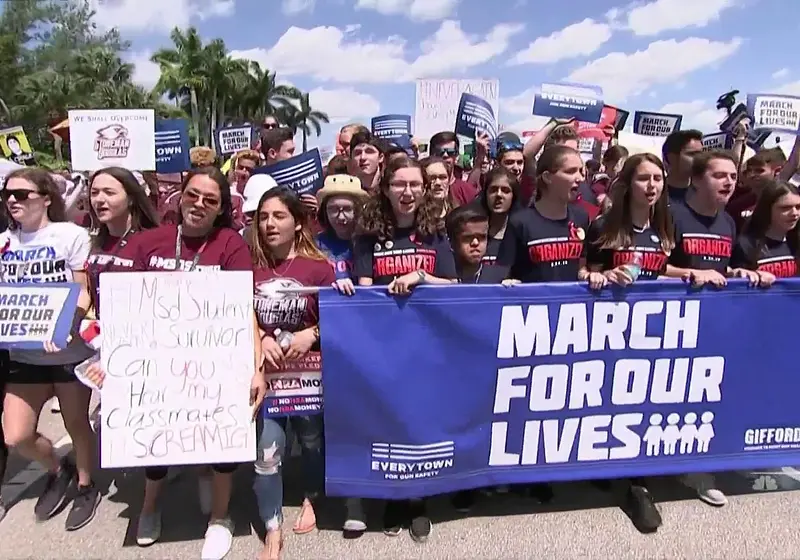On Tuesday, 20th October, a lamentable tragedy unfolded in Lagos, Nigeria, as the Nigerian army and police killed 12 peaceful protesters at two locations: Alausa and Lekki.
They opened fire on the unarmed #endSARS demonstrators after they had turned off the streetlights and cut phone networks in the area. For 2 weeks, the resolute demonstrators had encamped at Lekki Toll Gate, galvanized by the power of social media in raising awareness about the profound political crisis gripping Nigeria.
This groundswell of dissent has resonated with individuals across the globe, as they stand in solidarity with the Nigerian public in their wide-ranging struggle against the government and corruption within the police force.
Odion Ighalo speaks out on reports of police brutality in his native Nigeria 🗣️ pic.twitter.com/F7XTPR8q7m
— B/R Football (@brfootball) October 21, 2020
Let us slide into your dms 🥰
Get notified of top trending articles like this one every week! (we won't spam you)Why are people protesting?
The genesis of these demonstrations can be traced back to early October 2020, when impassioned calls arose to dismantle the notorious police unit known as the Special Anti-Robbery Squad (SARS). This unit had gained notoriety for its long-standing record of violent allegations and mistreatment of the populace.
The fuse was ignited by a chilling video that surfaced, depicting a SARS officer callously shooting a man in Delta State before driving away, oblivious to the maelstrom of outrage that would engulf the entire nation.
Take the Quiz: Which Indian city is the perfect holiday spot for you!?
Let's match you with an Indian city that you would love!
What is SARS?
Established in 1992, SARS was conceived as a specialized division within the Nigerian Police Force with the mandate of combatting the surge of armed robberies and criminal activities, thus serving as a bulwark of protection for the Nigerian citizenry.
However, in recent times, Nigerians have been united in their belief that this unit has strayed far from its original purpose and morphed into an entity that flagrantly violates the law, accused of arbitrary arrests and abuse of power.
Nigeria deserves a government that works for all of its people, confronts corruption, and ends police brutality. The US should stand with Nigerian people, peacefully demanding justice and equality. #EndSARS https://t.co/5IOpAiAk8Z
— Elizabeth Warren (@SenWarren) October 22, 2020
Amnesty International and numerous other human rights organizations have unequivocally condemned SARS for acts such as rape, extortion, and extrajudicial killings, lending their voice to the cause of the Nigerian people in their quest for justice.
These groups have also been quick to critique the Nigerian government for its abject failure to hold any SARS officer accountable for their actions.
“Nigerians are outraged by the impunity with which SARS perpetrates horrific human rights violations” Osai Ojigho, Director of Amnesty International Nigeria
#endSARS
Underpinning the #endSARS movement is a collective outcry for justice, echoing similar grassroots movements like Black Lives Matter and the protests in Hong Kong. The Nigerian youth have emerged as the vanguards of change, resolutely demanding the complete eradication of this controversial police unit.
Nigeria, with its soaring population and an average age of 18, boasts one of the world's most youthful populations. It, therefore, comes as no surprise that its youth have risen to the occasion, determined to confront the spectres of misconduct and brutality that have plagued their homeland.
The #endSARS hashtag, which first gained prominence in 2017 as a platform for individuals to share their harrowing experiences with the SARS unit, has since become a rallying cry for justice.
It symbolizes the collective condemnation of the profiling, arbitrary arrests, and biased actions perpetrated by SARS officers against the public.
While some may have hailed Nigerian President Muhammadu Buhari's announcement on the 11th of October that SARS would be disbanded, the fervour of the #endSARS movement has not abated. Many sceptically view Buhari's pronouncement as yet another hollow promise, reminiscent of similar assurances made in years gone by.
Unravelling the SARS dilemma:
During a televised debate last week, President Muhammadu Buhari did affirm his commitment to disbanding SARS, but there have been no substantial changes since that statement. The formation of a new unit called SWAT (Special Weapons and Tactics) has commenced, with its officers purportedly undergoing training to enhance their conduct and aptitude for using force.
However, protesters harbour deep apprehensions that Buhari's administration will simply reassign the former SARS officers to SWAT and other departments, without addressing the public's demands for accountability.
Several military officials and ministers have issued statements regarding the protests, concerned that demonstrations may propel the country towards anarchy if the movement is not satiated and requests are not met.
This government respects and will continue to respect all the democratic rights and civil liberties of the people, but it will not allow anybody or groups to disrupt the peace of our nation.
— Muhammadu Buhari (@MBuhari) October 22, 2020
Police Chief Mohammed Adamu has expressed support for the Nigerian citizens' right to engage in peaceful protests, ordering a cessation of force against them after acknowledging the legitimacy of their grievances. However, protesters continue to demand the intervention of an independent body to investigate police brutality in the country, as well as the retraining of SARS officers should they be reassigned to other divisions.
Wide World, One Goal
Unsurprisingly, social media has played a pivotal role in disseminating information globally. Numerous celebrities, including Rihanna and Chance The Rapper, have utilized platforms like Twitter and Instagram to express their support for the protesters, offering messages of solidarity amidst the turmoil and unrest in Nigeria.
#ENDSARS 🇳🇬 pic.twitter.com/59lrs8JnDA
— Rihanna (@rihanna) October 20, 2020
In response to the killings at Lekki, United States presidential candidate Joe Biden urged Nigerian authorities to end the "violent crackdown on protesters." Former Democratic candidate Hillary Clinton also took to Twitter, directing a message to President Buhari, calling for an end to the deaths of young protesters.
I’m calling on @mbuhari and the @hqnigerianarmy to stop killing young #EndSARS protesters. #StopNigeriaGovernment
— Hillary Clinton (@HillaryClinton) October 20, 2020
Hundreds of thousands of people worldwide have signed petitions demanding change in Nigeria, while the #endSARS hashtag remains a constant presence, serving to raise awareness and condemn both the Nigerian Police Force and the government. Peaceful protests have sprung up from Ontario, Canada, to Manchester, England, underscoring the international community's eagerness to demonstrate solidarity and unity.
At the #ENDSARS protest in #Berlin pic.twitter.com/7jda9Y5p3N
— Elnathan John (@elnathanjohn) <a href="https://twitter.com/elnathanjohn/status/1319942604461690880?ref_src=twsrc%5Etfw">October 24, 2020
BEYond dissatisfaction
Beyoncé, among other celebrities, has voiced her support for the #endSARS movement. A statement was issued by the singer's charity 'BeyGood' on Twitter stating she was “heartbroken to see the senseless brutality taking place in Nigeria...we are collaborating with coalitions to provide emergency healthcare, food, and shelter.”
Her efforts, however, were met with backlash as netizens expressed their displeasure with Beyoncé's focus on the country's poverty rather than directly addressing the government and police. This criticism arose as Nigeria holds the status of the most prosperous nation on the continent.
Some Twitter users questioned why Beyoncé chose to speak out much later than other high-profile celebrities, deeming her statement controversial.
Too late, but better late than never.... you could have spoken up early but you didn't. We don't need care packages... we need you to get on all news platforms and speak up for us. Lend your voice to this injustice
— Zen Magazine Africa (@zenmagafrica) October 21, 2020
Every day the clock resets
The viral nature of the #endSARS movement has not only exposed the corruption within the Nigerian police but has also created a platform for the youth to denounce their government, legal system, and representatives for their failure to fulfil promises. The prospect of putting an end to SARS and enacting substantial police reforms has instilled confidence and a sense of accomplishment among Nigeria's youth, fuelled by overwhelming global support.




















